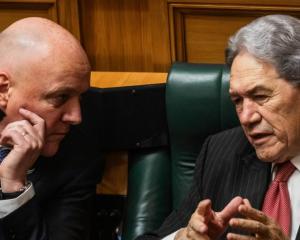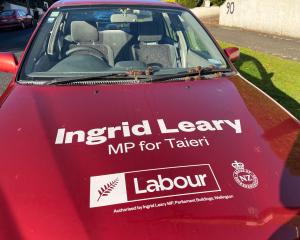Personal tax cuts are back on the agenda for this May's budget with an increased GST and new property tax possible options to pay for them.
The Government delayed its second round of tax cuts last year because of the recession but today Finance Minister Bill English raised expectations when commenting on the Tax Working Group's recommendations out this afternoon.
"The Government certainly has an interest in them (cuts)," Mr English told reporters.
"We need a package that raises about the same revenue as it does now. We don't have the luxury of the previous tax package where you could give away revenue, so if we give any away it has to come from somewhere else."
He also signalled lowering the company tax.
"The ideal is (Australians) are following us - not us following them - so let's see if we can achieve that."
Tax could play a role in increasing New Zealand's economic growth and productivity and the Government wanted to reward effort and encourage saving, Mr English said.
The group made a range of recommendations today, including raising GST from 12.5 percent to 15 percent and cutting personal income tax rates.
Group chairman Bob Buckle said increasing taxes on consumption and reducing taxes on personal incomes would encourage saving and investment rather than consumption.
The group also suggested a method of taxing capital gains on residential rental properties and a low-rate land tax and said that the company, top personal and trust tax rates should be aligned to improve the integrity of the tax system.
Also, the removal of a 20 percent depreciation allowances on plant and equipment was proposed.
So far the only option ruled out by the Government has been a capital gains tax on the family home.
The group said the tax system was broken and needed comprehensive reform, but Mr English said while the group had presented practical options the Government had to deal in political realities.
"I think that the working group's done a good job of putting together a report that covers the theory of a perfect tax system as well as recommendations of practical options that we can move around into a package."
The report raised concerns about the welfare system and said it needed to be reviewed. Mr English said that was possible down the track.
Revenue Minister Peter Dunne was concerned that the Working for Families tax credits were being misused.
"There is growing evidence that trusts and companies, and highly geared residential rental properties, are being used to reduce taxable income and so qualify for Working for Families.
"Such abuse potentially places an unfair burden on the 60 percent of families who do not receive Working for Families tax credits." Mr English said that was more a problem with the tax system than the policy.
"That's really a matter of tidying up the way they can manipulate their taxable income. It's not so much inherent in Working for Families, it's a reasonably sound system. It's the tax system where the weaknesses are and I think they've done a good job of pointing those out."
Mr English said the tax system needed to be broad-based and fair, and that meant wealthier people paying more.
"Some of the information they provided around who pays what is quite startling - for instance a survey of 100 of New Zealand's wealthiest people shows that only half of them pay the top tax rate. It's astounding to a layman, I'd have to say."
Labour Party finance spokesman David Cunliffe said the party would consider the report and urged caution that any changes did not disadvantage workers.
Green Party co-leader Russel Norman said the recommendation to align the top personal tax rate with the corporate rate should be rejected because those earning less would have to pay more. He said tax loop holes should be shut down.
The Greens supported a capital gains tax and would also like to see environmental taxes introduced.
The Council of Trade Unions hoped for tax cuts but said there did not need to be a reduction in the top rate. It opposed increasing GST.
Business NZ urged a reduced company tax rate saying it was important to help New Zealand be competitive. It held concerns that a land tax would be an anti competitive cost on land-based businesses.












